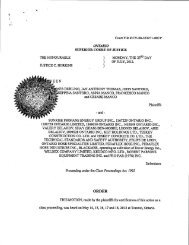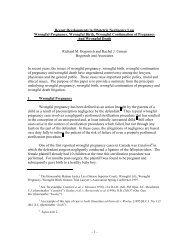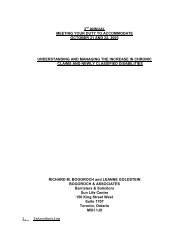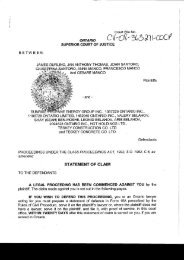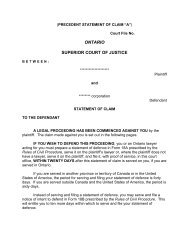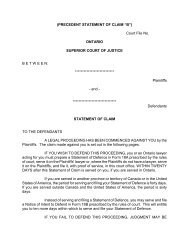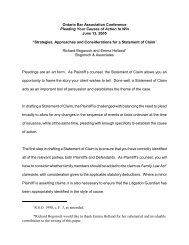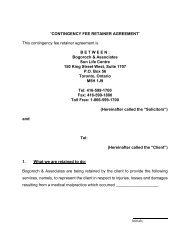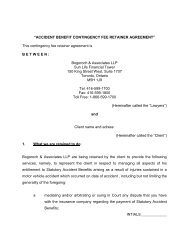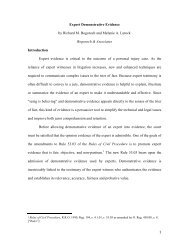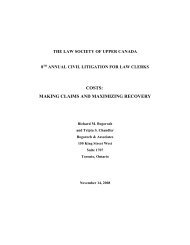Catastrophic Accident Benefit Claims - The Plaintiffs' Perspective
Catastrophic Accident Benefit Claims - The Plaintiffs' Perspective
Catastrophic Accident Benefit Claims - The Plaintiffs' Perspective
Create successful ePaper yourself
Turn your PDF publications into a flip-book with our unique Google optimized e-Paper software.
a) a score of 9 or less on theGlasgow Coma Scale as published in Jennett, B. andTeasdale G., Management of Head Injuries, ContemporaryNeurology Series, Volume 20, F.A. Davis Company,Philadelphia, 1981, according to a test administered within areasonable period of time after the accident by a persontrained for that purpose, ora) a score of 2 (vegetative) or 3(severe disability) on the Glasgow Outcome Scale, aspublished in Jennett, B. and Bond, M., Assessment ofOutcome After Severe Brain Damage, Lancet i:480, 1975,according to a test administered more than six months afterthe accident by a person trained for that purpose(f)subject to subsections (2) and (3), any impairment or combination ofimpairments that, in accordance with the American Medical Association’sGuides to the Evaluation of Permanent Impairment, 4 th edition, 1993,results in 55 per cent or more impairment of the whole person, or(a)subject to subsections (2) and (3), any impairment that, inaccordance with the American Medical Association’s Guides to the Evaluation ofPermanent Impairment...results in a class 4 impairment (marked impairment) orclass 5 impairment (extreme impairment) due to mental or behaviourial disorderSubsection 2(3) provides that, for the purposes of clauses (f) and (g) of the definition of“catastrophic impairment” in subsection (1), an impairment that is sustained by aninsured person but is not listed in the American Medical Association’s Guides to the



